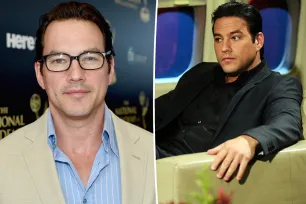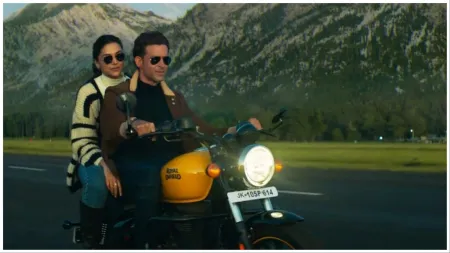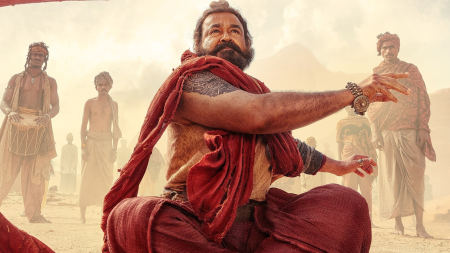There is a reason why the “coming of age” trope is a pulp classic. You can never have enough of it. Each generation has its version of it — the predictable beats of being lost, the journey of making objectively stupid choices until the protagonist stumbles on to that profound moment of purpose and clarity (typically in a picturesque location) that warms your heart. You could love and/or hate the protagonist, but you’ll always be rooting for them. You’ll be watching the movie till they get their literal or metaphorical “homecoming”.
My understanding of India is a little like that — it’s coming of age.

Growing up, India was never a fixed “idea” for me. I could never define it. Rather, in my naive way, I saw it as an “ideal”. An “ideal” of becoming. An “ideal” that had this magical ability to expand in response to all the demands of its identities while staying firm in its commitment to justice, liberty, equality, and fraternity. As you might have guessed, the younger me was an idealist. She was the main character in her quest to fix the world — whatever that meant.
An older me is a different story. She is the protagonist’s best friend providing witty remarks and the required support for the former’s character arc. She is constantly unimpressed and occasionally consequential in driving the plot forward. The well-meaning-but-very-toxic protagonist to my current best-friend phase is India. Like in most coming-of-age stories, I’m hoping this phase is the one where the protagonist gets everything wrong so that they come to the climactic moment of purposeful clarity. That moment in which they magically set all the wrongs that they did right, and all is well in the world.
When I first sat in front of my laptop in an unsuccessful attempt to string together words that somehow made sense, I was trying to write a personal essay on my relationship with delusion. I was going to take a stab at the “delulu is the solulu” trend — somehow rationalise how our delusion is a coping mechanism in response to the chaos of our realities. While I still think this is true, I can’t help but contemplate the strange experience of being 25 as the Indian Republic turns 75.
Varya’s 25 at India’s 75 is confusing.
To be slightly more articulate and to quote Charles Dickens (as we all must): “It was the best of times, it was the worst of times, it was the age of wisdom, it was the age of foolishness, it was the epoch of belief, it was the epoch of incredulity, it was the season of light, it was the season of darkness, it was the spring of hope, it was the winter of despair”. To be even more poetic and enlightened, as Taylor Swift put it: “We’re happy, free, confused and lonely in the best way. It’s miserable and magical, oh yeah”.
To also be fair, my relationship with India is not typical. My mother is from Bhopal; my father is from Lucknow. I was born in Mumbai and have lived across Port Blair, Wellington and Delhi. I have travelled across 18 states in the country, seen the highest motorable road and visited the (now submerged) lowest tip of India, Pygmalion Point. When the nonchalant “where are you from” question comes to me, I very unironically answer “India”. This answer now holds more relevance as I study at the University of Oxford.
To make sense of what it means to be Indian in another country when India is still coming of age, I spoke to Sanam Arora. Professionally, she daylights as an investment management consultant and moonlights as the founder and chairperson of the National Indian Students and Alumni Union UK (NISAU). She is a socio-economist who studies migration patterns for fun. Speaking to Sanam was a strange feeling of being understood. A realisation that my pride in being Indian is separate from my responsibility of holding India accountable. That both of these can co-exist. More importantly, as India lives the beats of its coming-of-age journey, my duty as a best friend is to be honest. Honest to India in how I conduct my duties as a citizen. Honest to the world, in how I don’t let “others” appropriate it. With NISAU, Sanam is building her own narrative of India and Indians in the UK. She is hosting the fun(est) Diwali parties and leading policy advocacy for the millions of students who come to the UK from India to study. With my writing, I’m trying to be a decent citizen.
At this point, I would like to acknowledge that maybe this “coming-of-age” metaphor is annoying. Maybe the way I talk about India comes from a place of ignorance, privilege. Unfortunately, I’ll know more only in retrospect. However, what I do know now, as I make sense of India at 75, is that it has given a lot. In 1998, I was born into an India that found its way into a liberalised economy that ensured I had the opportunities to actualise my economic aspirations. I was born into an India that navigated its way through the early stages of globalisation while retaining a sense of self. I was born into an India that understood the value of its people, which today, manifests itself in the form of a global cohort of leaders running our political and economic world. I have spent the last two years making sense of the ambition in Indian GenZ. I have spent the last two years being in awe and delighted at the possibilities young Indians hold. This sense of gratitude co-exists with anger and disbelief at a lot of the choices India is making today. Maybe that’s the nature of relationships that matter, there is often love and hate in equal measure.
My parents like to think that as I grow out of 25, I will come of age. I will finally start making the right choices and live up to my own potential. In the same way, I like to think after 75, India will slowly but surely come of age. Regardless of the electoral outcome in 2024, India lives up to its ideals. And I might learn to become the main character of my own life.
The writer is a student at the University of Oxford
Disclaimer: The copyright of this article belongs to the original author. Reposting this article is solely for the purpose of information dissemination and does not constitute any investment advice. If there is any infringement, please contact us immediately. We will make corrections or deletions as necessary. Thank you.







